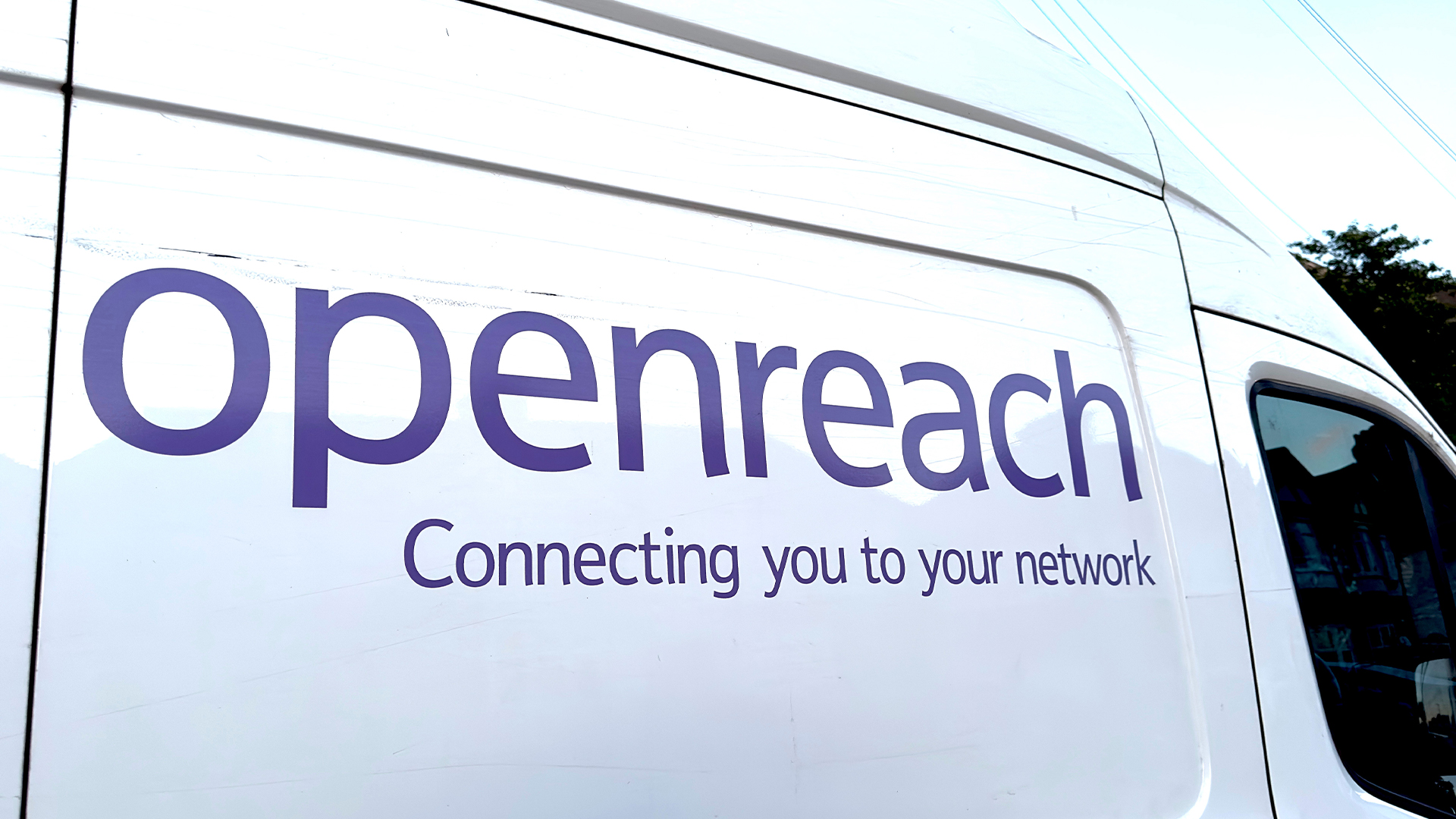Sponsored by BT
What exactly is IP, and why does it matter right now?
The future is calling: IP really will be a lifeline for small businesses...


The UK’s ageing copper-wire telephone network, the public switched telephone network (PSTN), is being retired, making way for a more agile and powerful technology: internet protocol (IP). For small businesses, this isn't just a technical upgrade; it's a fundamental change that presents an excellent opportunity to enhance efficiency, cut costs, and future-proof their operations.
So, what exactly is this technology that is set to redefine how we connect? In simple terms, IP is the set of rules that governs how data is sent and received over the internet. Think of it as the digital postal service, breaking down information—be it an email, a webpage, or a voice call—into small packets and ensuring they reach their destination.
This brings us to IP telephony, more commonly known as voice over Internet Protocol (VoIP). Instead of relying on traditional, physical copper lines, VoIP converts your voice into a digital signal that travels over your broadband connection. If you have ever used services like Skype, Microsoft Teams, or Google Voice, you've already experienced IP telephony in action.
The PSTN switch-off AKA the digital switchover
For decades, the PSTN has been the bedrock of the UK's telecommunications. However, this legacy infrastructure, with some parts dating back to the 19th century, is becoming increasingly expensive and difficult to maintain.
According to Ofcom’s 2024 Connected Nations report, network operators reported 1,523 “resilience incidents” in the year to September 2024, up 26% from the previous year. As a result, a nationwide switch-off is underway, with the final connections being moved to digital by January 2027.
While the deadline has been extended, BT is strongly encouraging businesses to make the switch by the end of 2025 to gain a competitive edge. Waiting until the last minute could lead to disruption, while an early move allows businesses to reap the benefits of a modern communications system sooner. The reason is simple: the old network is becoming more fragile.
Research carried out by BT in 2024 showed that just over one-fifth (22%) of small and medium-sized businesses still consider themselves as analogue companies due to how they carry out many tasks and operational activities.
“Today, businesses of all shapes and sizes can’t run without stable, secure connectivity. The UK’s analogue copper telephone network has a proud history, with its origins in the 1800s, but it’s no longer up to the task for businesses. It’s simply too risky to build the economy on a shaky foundation,” says Kerry Small, chief operating officer for BT Business.
“Analogue companies making the move now can rely on rock-solid digital connectivity to help keep them in business for years to come. We’re supporting customers, small and large, through the move, so no business is left behind. Whether you’re a tech start-up or a family firm passed down through generations, when it comes to going digital – BT’s got your back.”
IP telephony vs legacy copper
The difference between IP telephony and the legacy copper-wire system could not be more striking. While the traditional PSTN operates as a circuit-switched framework, dedicating a physical line to every call, IP telephony takes a different approach. It relies on a packet-switched system, breaking down voice data into small, efficient packets and transmitting them across the internet. This shift in infrastructure opens the door to a new generation of communication capabilities.
One of the most noticeable improvements is call quality. Modern VoIP solutions now deliver high-definition audio, providing clarity that far exceeds what traditional landlines can offer. Equally transformative is the way IP telephony extends beyond basic voice calls. It serves as the foundation for unified communications, seamlessly blending voice, video conferencing, messaging, and email into one cohesive platform that supports fluid collaboration.
The integration of artificial intelligence elevates IP systems even further. Real-time transcription, intelligent call routing, and advanced analytics have become standard features, allowing organisations to both streamline interactions and derive greater value from customer conversations. Security, too, has evolved with the transition. Unlike the largely unprotected copper-based connections of the past, modern IP telephony is reinforced with robust measures such as end-to-end encryption, ensuring that business-critical communications stay private and protected.
Ultimately, the transition from copper to IP is not merely about replacing an outdated technology; it is about transforming communication into a smarter, more powerful, and more secure experience.
The tangible benefits for small businesses
For small and medium-sized businesses, the transition to IP telephony is far more than a technological upgrade—it is a deliberate strategic choice with tangible rewards. Perhaps the most compelling benefit lies in the cost savings. By removing the need for separate phone lines and taking advantage of lower call rates—particularly for international communication—businesses can cut their operational expenses by a significant margin by using VoIP instead of traditional phone lines. Savings on this scale can free up valuable resources to invest in other areas of growth.
Flexibility is another powerful advantage. In today’s landscape of remote and hybrid work, employees are no longer tethered to a physical office phone. With IP telephony, calls can be made and received from virtually anywhere with an internet connection, whether on a desk phone, laptop, or mobile device. This mobility allows teams to remain connected and productive, regardless of where they work.
Scalability is equally effortless. As a business expands, adding or removing users no longer requires complex hardware installations. Instead, adjustments can be made quickly and easily through software, ensuring communication systems scale smoothly with evolving needs. Beyond internal operations, the customer experience also receives a significant boost. Features such as auto-attendants to guide callers efficiently or voicemail-to-email services that allow for faster responses contribute to greater professionalism and improved service.
Looking to the future, the decision to adopt IP telephony is also a proactive safeguard. With the eventual switch-off of the legacy PSTN an inevitability, moving to IP now ensures that businesses are not only keeping pace with change but also positioning themselves ahead of it, ready to embrace the next wave of digital advancements.
Waiting until the deadline risks a last-minute scramble for engineering slots, potentially leaving a business without a service when they need it most. The message for small businesses is clear: the time to make the move to IP seriously is now. It's not just about replacing an old phone system; it's about embracing a technology that can fundamentally improve how you communicate, collaborate, and compete in the digital age.
Sign up today and you will receive a free copy of our Future Focus 2025 report - the leading guidance on AI, cybersecurity and other IT challenges as per 700+ senior executives
Rene Millman is a freelance writer and broadcaster who covers cybersecurity, AI, IoT, and the cloud. He also works as a contributing analyst at GigaOm and has previously worked as an analyst for Gartner covering the infrastructure market. He has made numerous television appearances to give his views and expertise on technology trends and companies that affect and shape our lives. You can follow Rene Millman on Twitter.
-
 Mistral CEO Arthur Mensch thinks 50% of SaaS solutions could be supplanted by AI
Mistral CEO Arthur Mensch thinks 50% of SaaS solutions could be supplanted by AINews Mensch’s comments come amidst rising concerns about the impact of AI on traditional software
-
 Westcon-Comstor and UiPath forge closer ties in EU growth drive
Westcon-Comstor and UiPath forge closer ties in EU growth driveNews The duo have announced a new pan-European distribution deal to drive services-led AI automation growth
-
 Openreach wants enterprises to move quickly ahead of the PSTN switch-off, so it’s hiking prices on legacy services to push them into action
Openreach wants enterprises to move quickly ahead of the PSTN switch-off, so it’s hiking prices on legacy services to push them into actionNews Businesses face massive price hikes if they fail to act before the PSTN switch-off
-
 The move to a digital network and its role in the bigger picture of achieving true digital transformation: how SMBs can set themselves up for success
The move to a digital network and its role in the bigger picture of achieving true digital transformation: how SMBs can set themselves up for successSupported Beyond the dial tone, the digital switchover is the key to SMB success
-
 The analogue to digital switchover affects way more than landlines: Why small businesses need to take action now
The analogue to digital switchover affects way more than landlines: Why small businesses need to take action nowSupported The shift away from PSTN is about more than just new tech – sticking with the old system is not an option
-
 What is the digital switchover, and why does it matter to small businesses?
What is the digital switchover, and why does it matter to small businesses?Supported Adopting IP systems reduces costs and unlocks new innovation
-
 Is your small business ready for the move to digital? Key considerations and actions you need to take today
Is your small business ready for the move to digital? Key considerations and actions you need to take todaySupported From an initial plan to a full digital service, here is everything you need to know about the digital switch to an all-IP business
